Tsuut'ina Nation hand games add 'intensity' to weekend powwow
Kind of like hide-and-seek but with bones, music, traditional drumming and a top prize of $30K
The Tsuut'ina Nation is known for its powwow and rodeo, but there was one event Sunday that combined both rhythm and competition that some look forward to all year.
- Tsuut'ina Nation aims to revitalize its language by targeting its children
- Tsuut'ina First Nation plans major commercial development at Calgary's southwest edge
There was a booming sound of drums, pounding out a constant beat and encouraging competitors in the hand games competition.
Sixty four teams made up of three to five players, each took turns hiding fist-sized marked and unmarked bones while opponents try to win points by guessing which hand holds the unmarked bone.
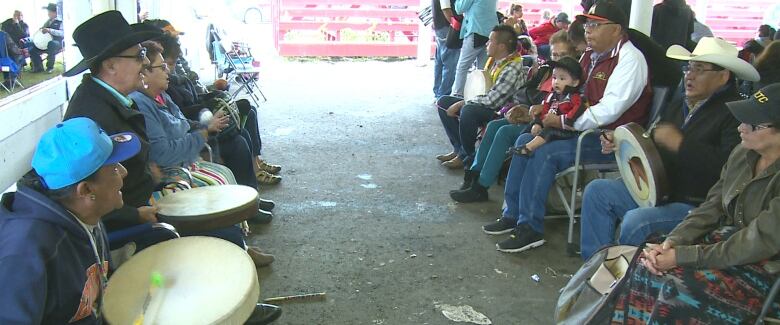
There are two teams that sit across from each other at a time. One team hides and one team guesses. Two people on the hiding side conceal two bones in their hands or behind their backs. They also use traditional instruments like drums, sticks, rattles and clappers to distract the guessing team.
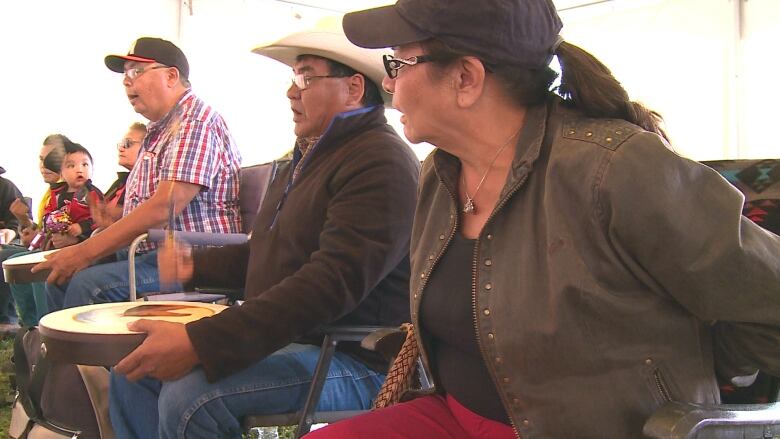
One member of the guessing team, usually the captain, tries to figure out the pattern of the hidden bones. He or she uses a gesture by hand or with a small stick to indicate where they think the bones are.
The bones must be surrendered by the hiding side if the call is accurate but if the guessing side is wrong, they have to give the hiding side a stick.
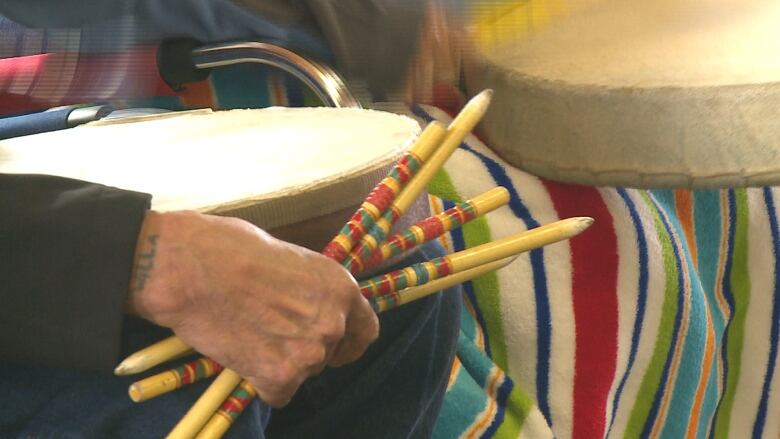
The game continues until one team holds all the sticks.
Organizer Regena Crowchild said hand games are an important tradition to many First Nations.
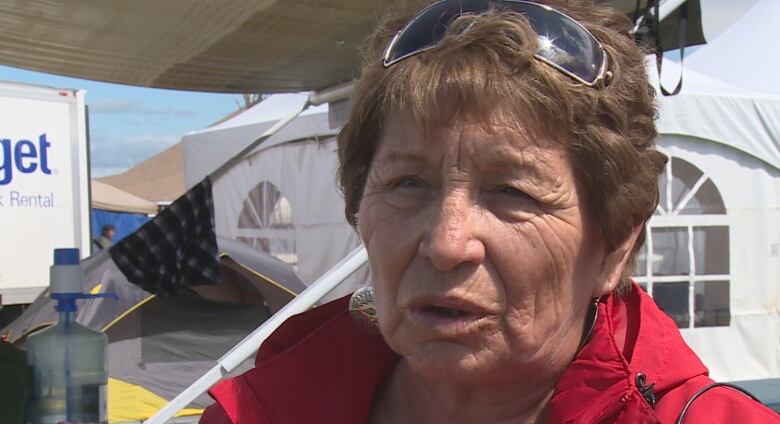
"Well it was with our people from a long time ago at the early days they used to bet, they'd bet furs, they'd bet clothing," Crowchild said.
But instead of betting there's a jackpot at this tournament.
Chanse Twins says he was born to play.
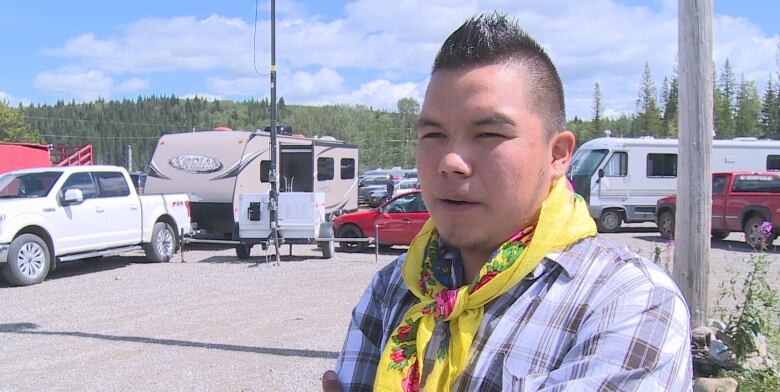
"It's been part of my life since forever, my mom and them played it, they loved it," Twins explained.
"I just sat there and watched and as soon I got the bones I entered a game and I just fell in love," the 22-year-old said.
- Justin Trudeau honoured by Tsuut'ina First Nation as 'the one that keeps trying'
- Tsuut'ina Nation returns to original name to preserve culture and language
He says he fell in love not only with the competitiveness, but also how music and rhythm can add so much intensity to a game.
"You're constantly singing and singing and hiding and singing," Twins said.
"It gets it gets hard."
But the hard work can really pay off in the end, as the jackpot was about $30,000.
- MORE CALGARY NEWS |Tsuut'ina powwow features the colourful evolution of dress
- MORE CALGARY NEWS |Calgary woman challenges affordable housing stigma after Rosedale opposition













_(720p).jpg)


 OFFICIAL HD MUSIC VIDEO.jpg)
.jpg)



























































































